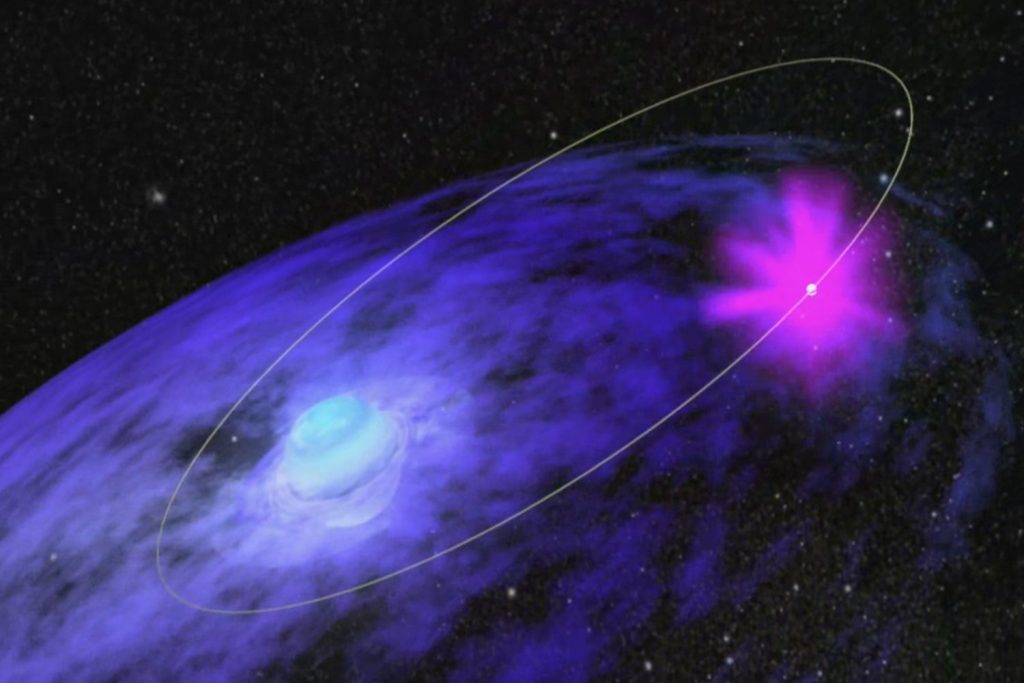Astronomers have spotted pure chaos lurking in the cosmos. Thousands of light years away from Earth, a small yet intensely heavy star is releasing bursts of material as powerful as repeating atomic bombs while spinning wildly on its own axis.
Using NASA’s NICER (Neutron Star Interior Composition ExploreR) telescope, a team of astronomers discovered the strange object, and it’s now one of the fastest spinning objects ever observed. This neutron star, the collapsed core of a massive star, completes 716 rotations per second while pulling material from its companion star and releasing it in the form of thermonuclear bursts. The discovery is detailed in a paper recently published in The Astrophysical Journal.
Located 26,000 light-years away from Earth, the neutron star is part of an x-ray binary star system called 4U 1820-30. X-ray binaries consist of a normal star and a collapsed star—either a white dwarf, neutron star, or black hole—orbiting each other in a gravitational dance. In this case, however, the fast-spinning neutron star is accompanied by a white dwarf star about the same size as Earth. The white dwarf orbits the neutron star every 11 minutes, the shortest known orbital period of a binary system.
Things only get weirder from here. Due to the intense gravitational pull between the two stars, the neutron star pulls material from its white dwarf companion. Once it’s accumulated enough material on its surface, a powerful burst of material erupts from the neutron star that’s similar to an atomic bomb, according to the researchers.
“During these bursts, the neutron star becomes up to 100,000 times brighter than the Sun, releasing an immense amount of energy,” Jerome Chenevez, associate professor at Technical University of Denmark, and co-author of the new paper, said in a statement. “So we are dealing with very extreme events, and by studying them, we get new insights into the exiting life cycles of binary star systems and the formation of elements in the universe.”
The star system, located in the Sagittarius constellation near the center of our galaxy, was discovered using NICER, an instrument aboard the International Space Station that studies black holes, neutron stars, and other extreme gravitational events. Between 2017 and 2021, the researchers observed 15 thermonuclear X-ray bursts from the binary star system.
“We were studying thermonuclear explosions from this system and then found remarkable oscillations, suggesting a neutron star spinning around its centre axis at an astounding 716 times per second,” Gaurava Jaisawal, a scientist at the Technical University of Denmark, and lead author of the paper, said in a statement. “If future observations confirm this, the 4U 1820-30 neutron star would be one of the fastest-spinning objects ever observed in the universe, matched only by another neutron star called PSR J1748–2446.”
Looking ahead, the team is hoping to conduct follow-up observations of the neutron star, which could shed more light on how these unusual pairings of dead stars create cosmic chaos.

